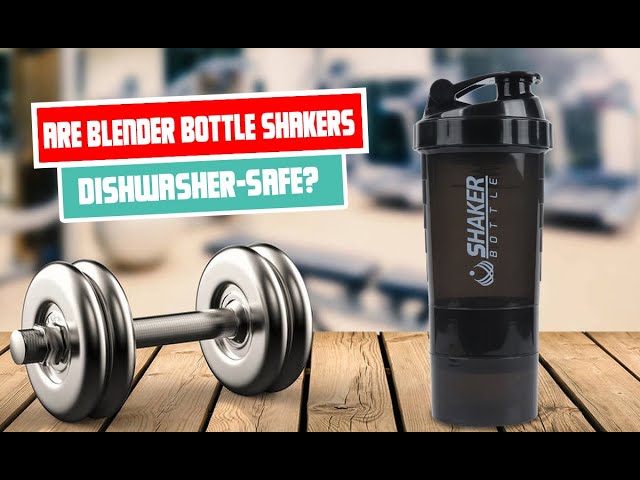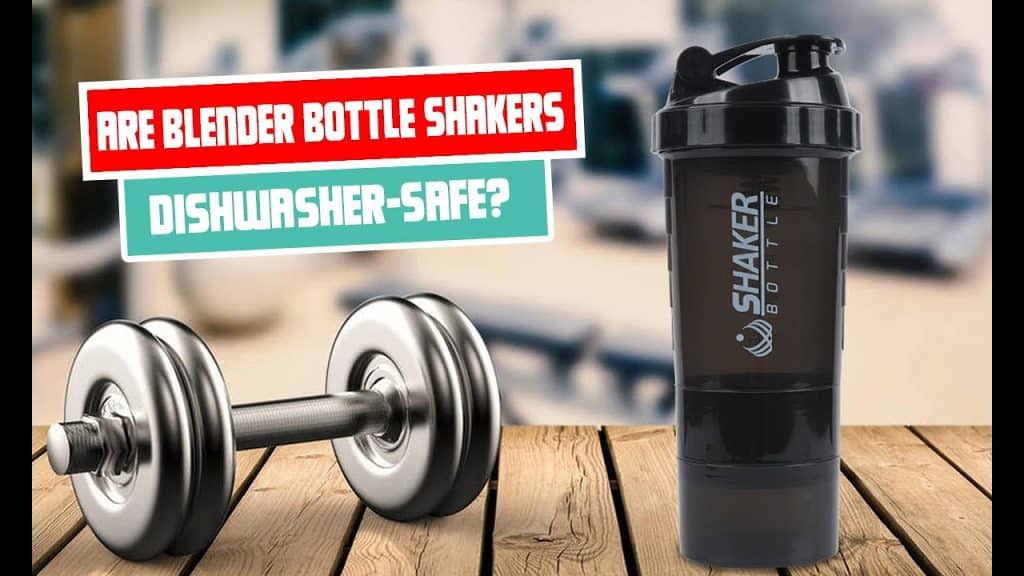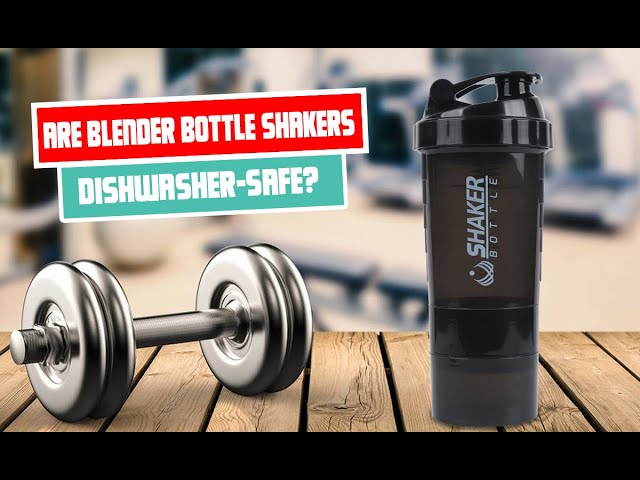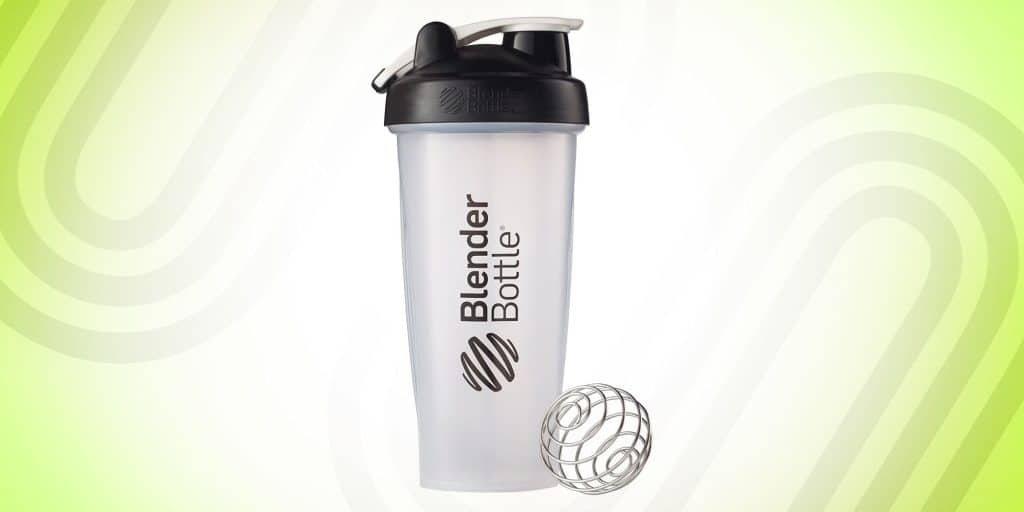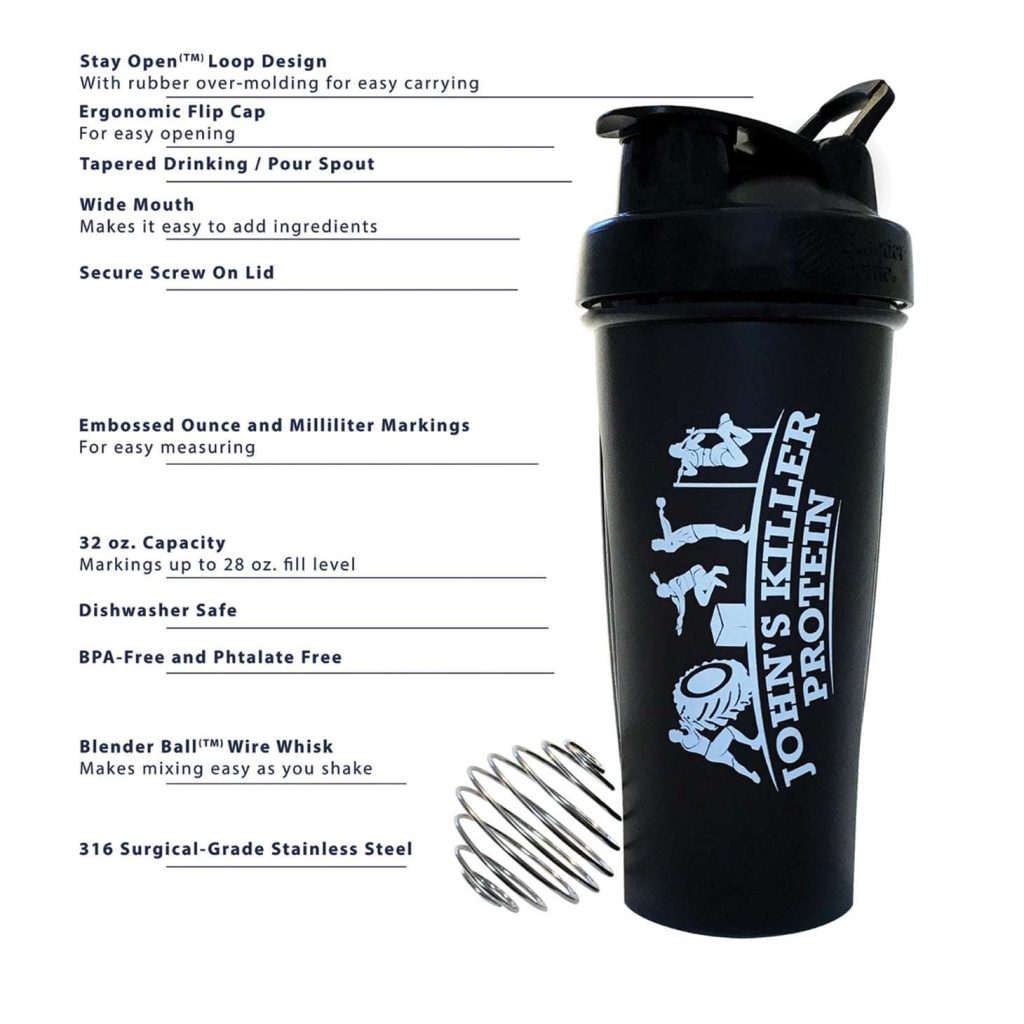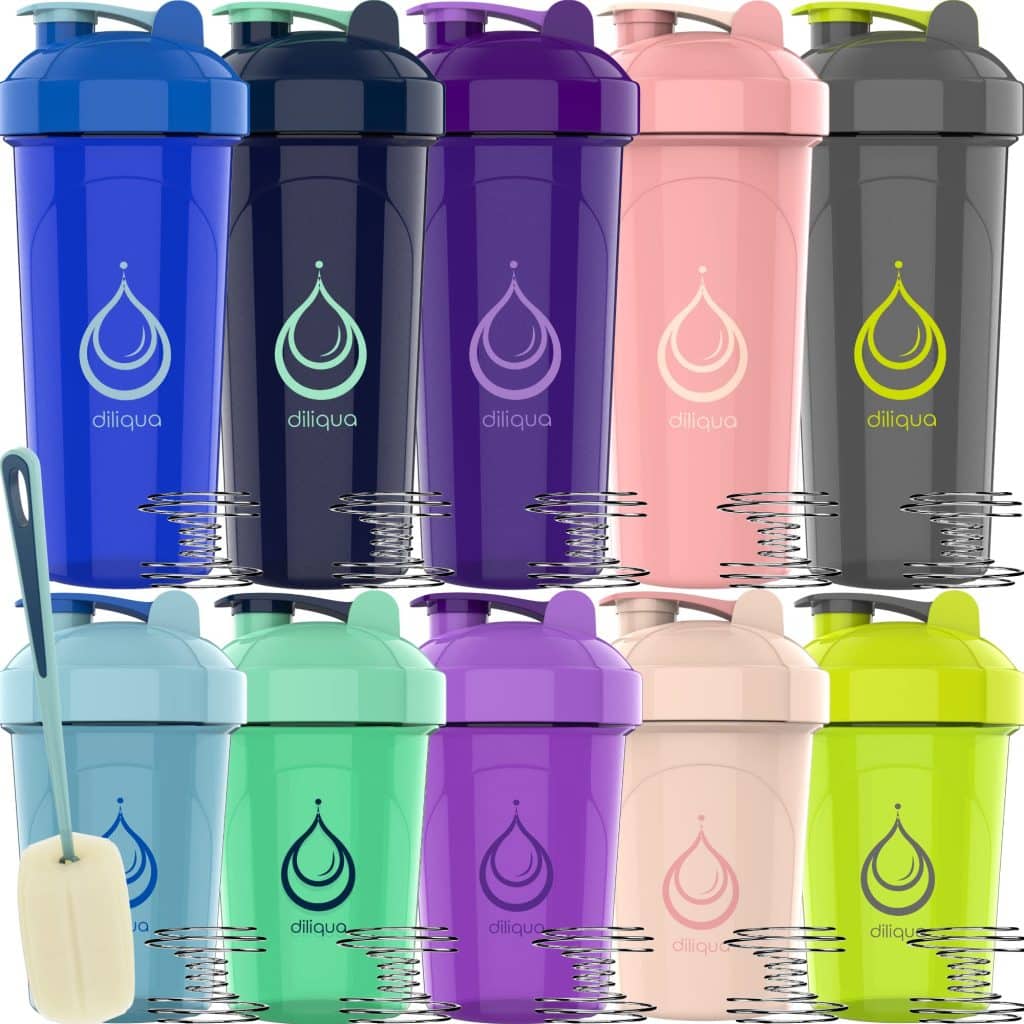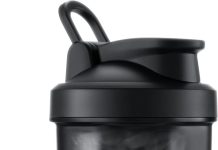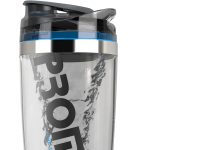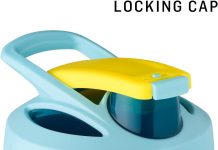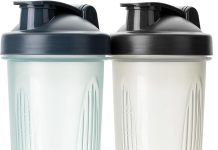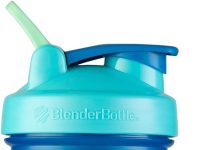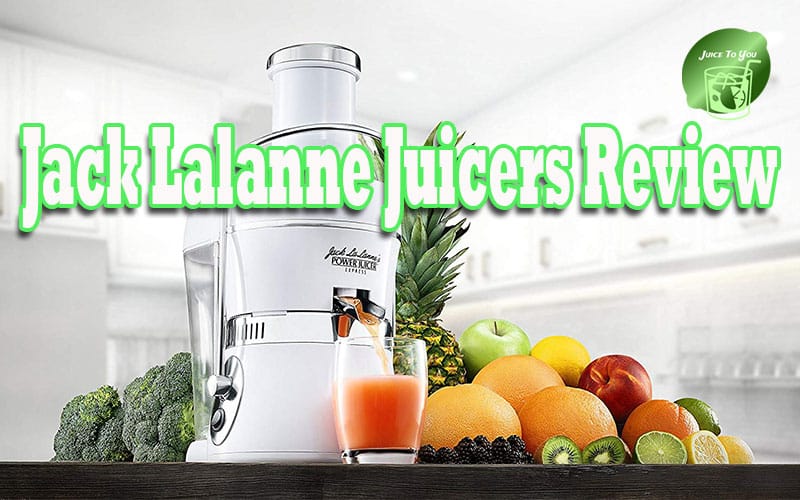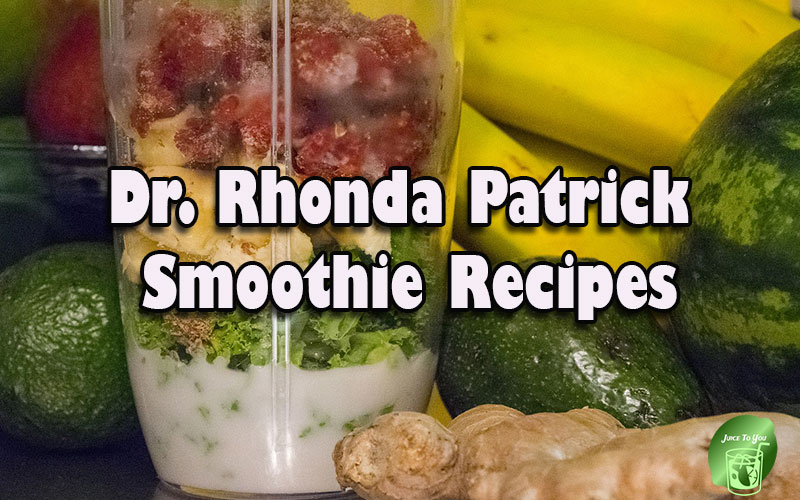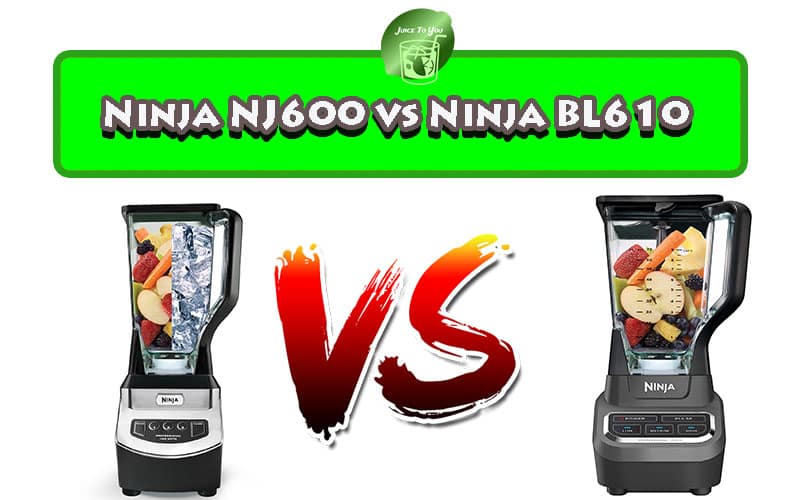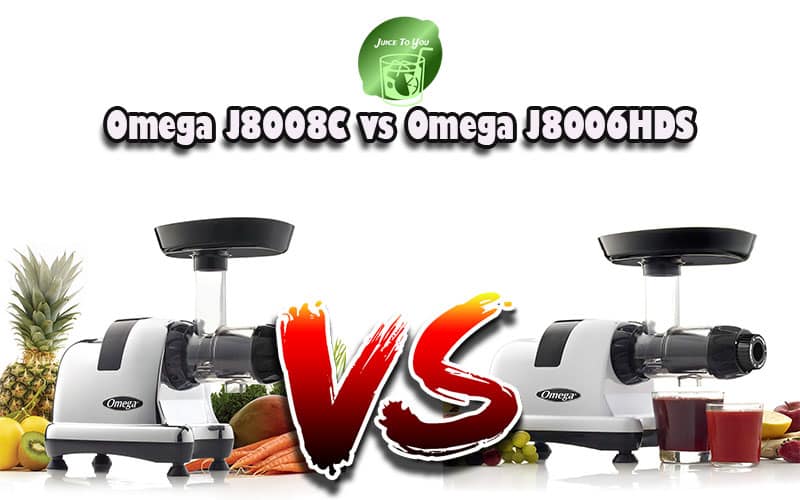When it comes to keeping ourselves hydrated and maintaining our active lifestyles, Blender Bottles have become a popular choice. But as we juggle our daily routines, we often find ourselves wondering – are these convenient shakers truly dishwasher safe? It’s a common concern for many health enthusiasts like us, who rely on these durable and efficient bottles to blend our protein shakes and smoothies. In this article, we will explore the dishwasher safety of Blender Bottles, offering insights and tips to ensure their longevity without compromising their performance.
Review contents
Materials Used in Blender Bottles
Blender Bottles are available in several different materials to cater to different preferences and needs. The most common materials used in blender bottles are plastic, glass, stainless steel, and silicone.
Plastic
Plastic blender bottles are lightweight, durable, and affordable. They are typically made from BPA-free, food-grade plastics that are safe for use with food and beverages. Plastic blender bottles are available in various types of plastic, including Tritan, polypropylene, and high-density polyethylene (HDPE).
Glass
Glass blender bottles offer a sleek and stylish design while also being a safe material for food and beverages. Glass is a non-porous material that does not absorb odors or flavors, making it ideal for blending different ingredients. It also provides excellent heat resistance, allowing for hot or cold beverages to be mixed in the bottle.
Stainless Steel
Stainless steel blender bottles are known for their durability and insulation properties. They are resistant to rust, corrosion, and scratching, making them suitable for long-term use. Stainless steel bottles also have the advantage of keeping beverages cold or hot for extended periods.
Silicone
Silicone blender bottles are flexible and lightweight. Silicone is a safe and non-toxic material that is resistant to high temperatures, making it suitable for use in blenders. Silicone seals and rings are commonly used in blender bottles to ensure a tight and secure fit.
Understanding Dishwasher Safety
Before deciding whether to clean your blender bottle in the dishwasher, it’s essential to understand the factors that contribute to dishwasher safety. The main considerations include heat resistance, chemical resistance, mechanical stress, impact on the lid and seal, and longevity.
Heat Resistance
Blender bottles need to withstand high temperatures in the dishwasher without warping or melting. The heat resistance of the materials used in the blender bottle determines whether it can safely withstand the dishwasher’s hot water and drying cycles.
Chemical Resistance
Dishwasher detergents often contain strong chemicals that can potentially react with the materials in the blender bottle. It’s crucial to ensure that the materials used in the blender bottle are chemically resistant and won’t be damaged or compromised by exposure to these chemicals.
Mechanical Stress
The dishwasher’s water jets and intense spraying action can subject the blender bottle to mechanical stress. It’s necessary for the blender bottle’s materials to be able to withstand this stress without warping, cracking, or breaking.
Impact on Lid and Seal
The blender bottle’s lid and seal are integral for preventing leaks and spills. Dishwasher use should not compromise the effectiveness of the lid and seal, ensuring that they remain tight and secure even after multiple dishwasher cycles.
Longevity
Regular use of the dishwasher can potentially affect the blender bottle’s longevity. It’s necessary to consider how dishwasher use may impact the overall durability and lifespan of the blender bottle.
This image is property of i.ytimg.com.
Plastic Blender Bottles and Dishwasher Use
Plastic blender bottles are a popular choice due to their affordability and durability. However, not all plastics are dishwasher safe, and caution must be taken when cleaning them in the dishwasher.
Types of Plastic
Plastic blender bottles are commonly made from various types of plastic, including Tritan, polypropylene, and high-density polyethylene (HDPE). It’s important to check the manufacturer’s instructions or product labeling to determine the specific type of plastic used in your blender bottle.
Dishwasher Compatibility
While many plastic blender bottles are dishwasher safe, it’s crucial to verify their compatibility with the dishwasher’s high temperatures, chemicals, and mechanical stress. Some plastic materials may not be suitable for dishwasher use and may require handwashing instead.
Avoiding High Heat Settings
To ensure the longevity of your plastic blender bottle, it’s advisable to avoid using high heat settings in the dishwasher. Excessive heat can cause plastic to warp, melt, or degrade over time. Always check the manufacturer’s recommendations for dishwasher settings.
Impact on Printing or Labeling
Plastic blender bottles often feature printed or labeled measurements, logos, or product information. Dishwasher use may affect the longevity and legibility of these prints or labels. It’s essential to follow the manufacturer’s guidelines to preserve the printing or labeling on your plastic blender bottle.
Glass Blender Bottles and Dishwasher Use
Glass blender bottles offer a sophisticated look and are a popular choice for those concerned about potential chemical leaching from plastic materials. However, there are important considerations when cleaning glass blender bottles in the dishwasher.
Heat Resistance of Glass
Glass is known for its excellent heat resistance, making glass blender bottles generally safe to use in the dishwasher. The glass should be able to withstand the high temperatures of the dishwasher without cracking or shattering.
Dishwasher Compatibility
Most glass blender bottles are dishwasher safe, but it’s essential to read the manufacturer’s instructions to ensure proper dishwasher compatibility. Some glass blender bottles may have specific recommendations or precautions for dishwasher use.
Concerns About Breakage
While glass blender bottles are generally durable, there is a risk of breakage when exposed to mechanical stress in the dishwasher, such as sudden impacts or collisions with other items. It’s important to handle glass blender bottles with care and avoid overcrowding in the dishwasher.
Avoiding Sudden Temperature Changes
Glass can be susceptible to thermal shock, which occurs when it is exposed to sudden temperature changes. To prevent breakage, it’s advisable to avoid transferring a hot glass blender bottle directly to cold water or vice versa. Gradual temperature changes are recommended to ensure the glass’s integrity.
This image is property of i.ytimg.com.
Stainless Steel Blender Bottles and Dishwasher Use
Stainless steel blender bottles are known for their durability, insulation properties, and resistance to rust and corrosion. However, there are considerations to keep in mind when using stainless steel blender bottles in the dishwasher.
Stainless Steel Characteristics
Stainless steel is a robust and long-lasting material, making stainless steel blender bottles highly durable. They are resistant to rust, corrosion, and scratching, making them suitable for dishwasher use.
Dishwasher Compatibility
Most stainless steel blender bottles are dishwasher safe, but it’s still important to check the manufacturer’s instructions for specific recommendations. Some models may have components or features that require handwashing rather than dishwasher cleaning.
Durability Concerns
While stainless steel is generally durable, the mechanical stress of the dishwasher can potentially cause dents or scratches on the surface of the blender bottle. It’s advisable to handle stainless steel blender bottles with care and avoid collisions with other items in the dishwasher.
Effect on Insulation Properties
Stainless steel blender bottles often feature vacuum insulation to keep beverages cold or hot for extended periods. Dishwasher use may not typically affect the insulation properties of the bottle unless the dishwasher’s hot drying cycle is excessively prolonged.
Silicone Blender Bottles and Dishwasher Use
Silicone blender bottles are a lightweight and flexible option that is gaining popularity due to their versatility and durability. Understanding the characteristics of silicone and its compatibility with dishwasher use is essential.
Silicone Properties
Silicone is a soft, rubber-like material that is known for its heat resistance and flexibility. It is safe for food and beverages, making silicone blender bottles a popular choice. Silicone is generally non-reactive and easy to clean.
Dishwasher Compatibility
Most silicone blender bottles are dishwasher safe, as the material can withstand the high temperatures and mechanical stress of the dishwasher. However, it’s still important to read the manufacturer’s instructions to ensure proper dishwasher compatibility.
Silicone Sealing Rings
Silicone sealing rings are commonly used in blender bottles to provide a tight seal and prevent leaks. Dishwasher use should not compromise the effectiveness of these sealing rings, ensuring that they remain intact and functional after dishwasher cycles.
Potential for Discoloration
While silicone is generally resistant to staining, certain substances or repeated exposure to high temperatures may cause discoloration. It’s important to clean silicone blender bottles thoroughly and avoid exposing them to substances known to cause discoloration.
This image is property of hips.hearstapps.com.
Manufacturer Recommendations
When it comes to washing your blender bottle in the dishwasher, it’s always best to follow the manufacturer’s recommendations. The blender bottle brand and specific model may have unique guidelines for dishwasher use.
Blender Bottle Brand
Different blender bottle brands may have variations in materials, construction, and recommended cleaning methods. It’s advisable to visit the manufacturer’s website or consult the packaging to find detailed instructions on dishwasher use.
Specific Model Recommendations
Within each brand, specific blender bottle models may have different dishwasher compatibility. Pay attention to any model-specific recommendations, precautions, or limitations provided by the manufacturer.
Manufacturer’s Website or Packaging
To ensure compliance with dishwasher safety guidelines, it’s essential to refer to the manufacturer’s website or packaging for accurate and up-to-date information. This will help you determine the best practices for dishwasher use with your specific blender bottle.
Effects of Dishwasher Use on Blender Bottles
While dishwasher convenience is undeniable, it’s important to consider the potential effects it may have on blender bottles over time. Dishwasher use can impact the degradation of materials, weakening of seals, and potentially alter the texture or appearance of the blender bottle.
Degradation of Materials
Repeated exposure to high temperatures, chemicals, and mechanical stress during dishwasher cycles can contribute to the degradation of materials used in blender bottles. This degradation may affect the overall durability and longevity of the bottle.
Weakening of Seals
Seals, such as silicone rings, are crucial for preventing leaks and ensuring the functionality of the blender bottle. Dishwasher use can potentially weaken these seals over time, leading to compromised performance and increased risk of spilling.
Potential Impact on Texture or Appearance
The dishwasher’s intense water jets and chemical detergents may affect the texture or appearance of the blender bottle. This could include fading of colors, dulling of finishes, or changes in the overall aesthetics of the bottle. It’s important to consider this potential impact on the blender bottle’s visual appeal.
This image is property of johnskillerprotein.com.
Alternative Cleaning Methods
If dishwasher use is not suitable or preferred, there are alternative cleaning methods to keep your blender bottle clean and hygienic.
Handwashing
Handwashing your blender bottle with warm, soapy water is a reliable method to maintain cleanliness. Be sure to thoroughly rinse the bottle, including any crevices or hard-to-reach areas, to remove any residual soap or debris.
Using Bottle Brushes
Using a bottle brush with soft bristles can help clean hard-to-reach areas of the blender bottle, such as the bottom or corners. Gently scrub the bottle with a bottle brush to effectively remove any residue or build-up.
Soaking in Soapy Water
For tougher stains or odors, soaking the blender bottle in warm, soapy water for a period of time can help loosen and remove debris. After soaking, rinse the blender bottle thoroughly before use.
Sterilizing with Boiling Water
To ensure complete sterilization, you can boil the blender bottle in water for a few minutes. This method is particularly useful if you want to eliminate any lingering bacteria or odors.
Determining Dishwasher Compatibility
To determine whether your blender bottle is dishwasher safe, there are a few factors to consider. It’s important to consult the manufacturer’s instructions and evaluate material-specific considerations.
Manufacturer Instructions
The manufacturer’s instructions are the most reliable source of information regarding dishwasher compatibility. They will provide specific guidance on whether the blender bottle can be safely cleaned in the dishwasher and any precautions or limitations to be followed.
Material-Specific Considerations
Different materials may have varying dishwasher compatibility. Consider the material used in your blender bottle, such as plastic, glass, stainless steel, or silicone, and verify if it is designed for dishwasher use.
Testing Dishwasher Performance
If you are unsure about the dishwasher compatibility of your blender bottle, you can perform a test run. Place the bottle in the dishwasher on a low heat setting and observe any signs of warping, leaking, or damage. If any issues arise, it’s best to discontinue dishwasher use.
Observing Signs of Damage
Regularly inspect your blender bottle for any signs of damage, such as cracks, warping, or compromised seals. These signs may indicate that dishwasher use is not suitable or that the bottle needs to be replaced. It’s crucial to prioritize safety and functionality when using a blender bottle.
In conclusion, whether your blender bottle is dishwasher safe depends on the specific materials used, as well as the manufacturer’s recommendations. Plastic, glass, stainless steel, and silicone blender bottles all have their own considerations when it comes to dishwasher use. Understanding the heat resistance, chemical compatibility, mechanical stress, and impact on lid and seal of your blender bottle will help you make an informed decision. If you choose to clean your blender bottle in the dishwasher, it’s important to follow the manufacturer’s instructions, avoid excessive heat settings, and be mindful of the potential impact on printing or labeling. Alternatively, alternative cleaning methods such as handwashing, using bottle brushes, soaking in soapy water, or sterilizing with boiling water can be used. By considering the manufacturer’s recommendations, observing signs of damage, and evaluating material-specific considerations, you can determine whether dishwasher use is suitable for your blender bottle.
This image is property of Amazon.com.

